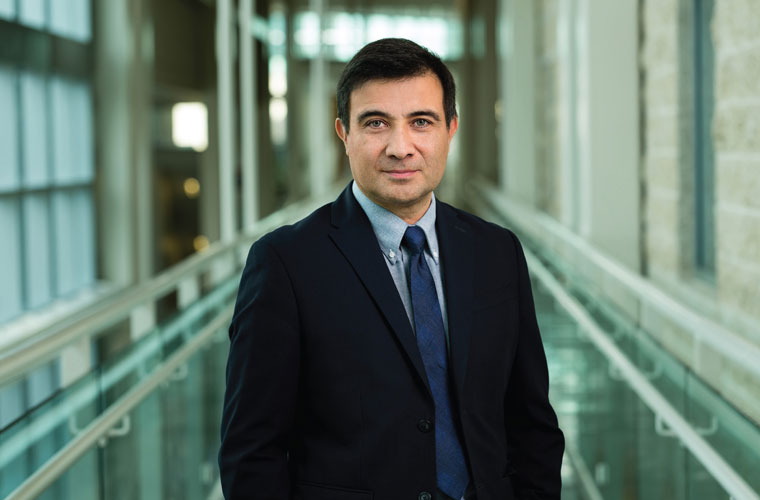Clavijo chosen to head National Bio and Agro-Defense Facility
Dr. Alfonso Clavijo is the new director of the Department of Agriculture's National Bio and Agro-Defense Facility in Manhattan, Kansas.
The NBAF is a state-of-the-art, high-security facility for research on foreign animal and zoonotic diseases that can affect livestock. It will replace Plum Island Animal Disease Center in New York.
The USDA announced this October that Dr. Clavijo, who started Oct. 13, is expected to play a key role in ensuring the smooth transition of responsibility from the Department of Homeland Security to the USDA once the 574,000 square-foot facility becomes fully operational in 2023.
"As NBAF's first permanent director, his extensive leadership experience will be a great asset in helping NBAF achieve its vision of being a national asset that protects U.S. agriculture and consumers through cutting-edge research, diagnostics, training, and development of vaccines and other countermeasures," said Chavonda Jacobs-Young, PhD, administrator for the USDA Agricultural Research Service.

The ARS partners with the USDA Animal and Plant Health Inspection Service to operate the NBAF, which is currently under construction and overseen by the Department of Homeland Security. Construction is scheduled to be completed in 2021.
Prior to Dr. Clavijo's appointment, he was laboratory executive director of the Canadian Food Inspection Agency's National Centres for Animal Disease. There, he oversaw the administration of diagnostic services; research to detect and prevent transboundary, emerging, and zoonotic animal diseases; and facilities at biosafety levels 2-4.
Dr. Clavijo has held leadership or advisory positions at CFIA laboratories, as well as Kansas State University, Texas A&M University, the Pan American Health Organization, and National University in Bogota, Colombia.
He earned a veterinary degree in 1986 from National University and a doctoral degree in veterinary microbiology/virology in 1995 from the University of Guelph in Ontario.